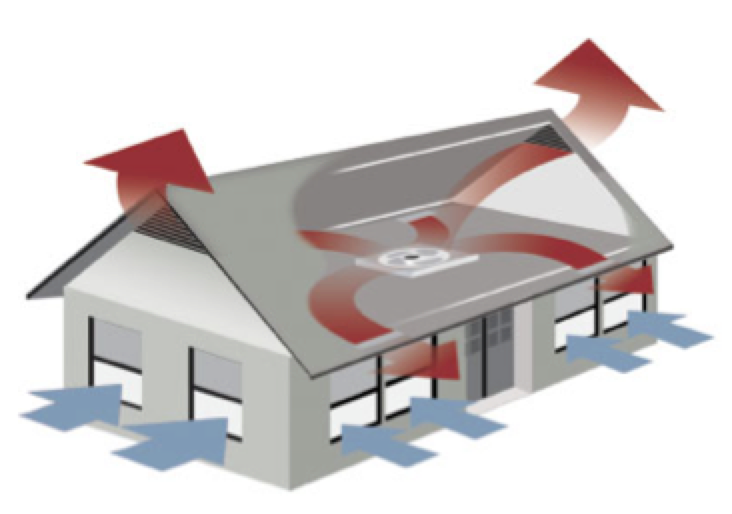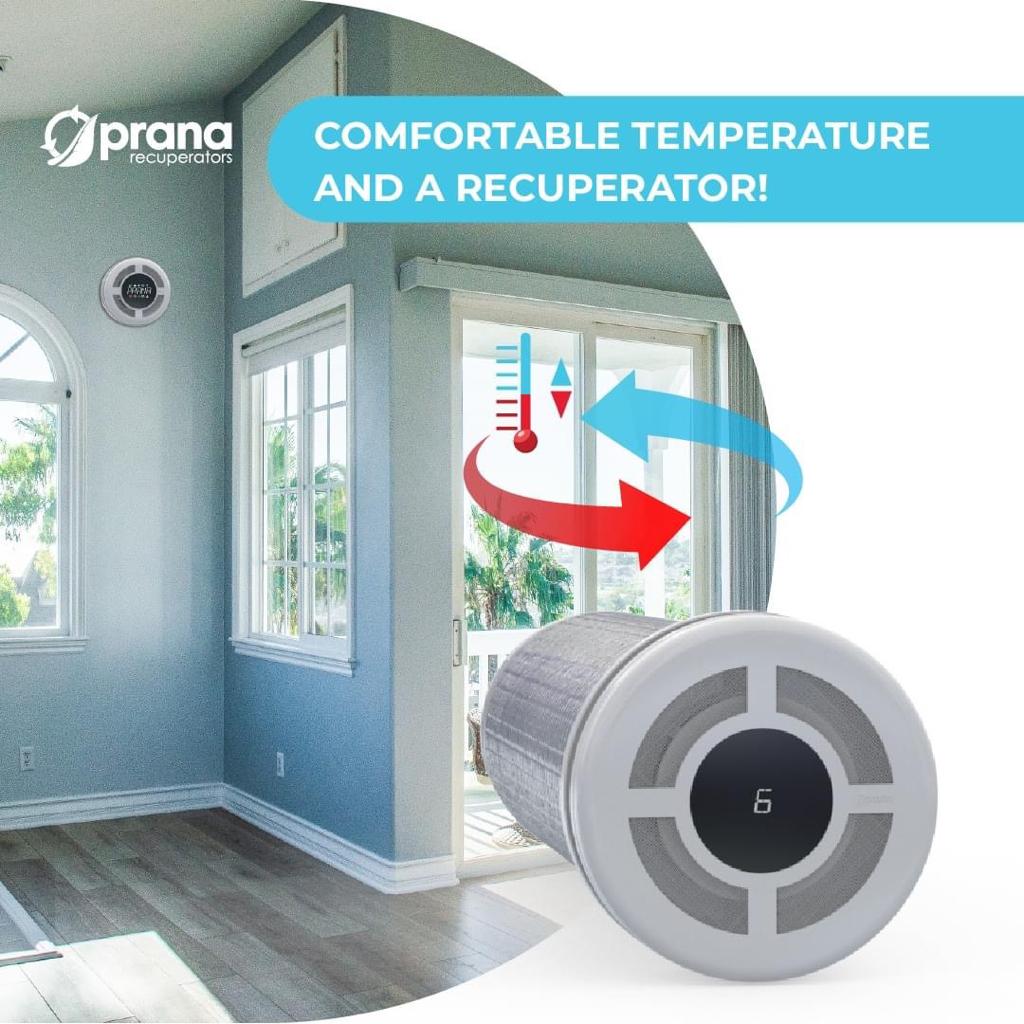Why Families in Sydney Trust Home Ventilation Melbourne Services
The Role of Home Air Flow in Avoiding Mold And Mildew and Indoor Allergens
Home ventilation is a critical part in maintaining a healthy and balanced indoor atmosphere. It regulates moisture levels, which can protect against the growth of mold and mildew and the accumulation of irritants. Many home owners neglect the relevance of proper air flow, frequently bring about unseen concerns. Understanding exactly how air flow systems function and their influence on air top quality might be the trick to a healthier living area. What actions can be taken to improve these systems properly?
Understanding Home Ventilation Equipments
While many house owners might overlook the significance of ventilation, recognizing home ventilation systems is necessary for preserving interior air top quality and preventing mold growth - Home Ventilation Melbourne. These systems assist in the exchange of stagnant interior air with fresh exterior air, effectively reducing pollutants and wetness levels. Typical kinds consist of all-natural air flow, which counts on wind and temperature level distinctions, and mechanical air flow, which utilizes ducts and fans to control airflow. Additionally, balanced ventilation systems combine both techniques to enhance air top quality. Effectively designed and maintained air flow systems can aid manage temperature level and moisture, making certain a comfy living setting. Home owners need to take into consideration variables like home climate, occupancy, and format when selecting a ventilation system to best match their needs and improve total air high quality
The Impact of Moisture on Mold Development
Humidity plays a crucial duty in mold development, making it a crucial variable for house owners to keep track of. Mold and mildew grows in atmospheres where humidity degrees surpass 60%, as these problems provide the wetness necessary for spores to proliferate and sprout. High humidity can arise from various sources, including inadequate ventilation, water leakages, and food preparation or showering activities. When moisture degrees remain raised, mold can create quickly on organic products such as drywall, wood, and textile. Property owners need to use dehumidifiers and guarantee appropriate air flow in locations prone to wetness, such as restrooms and cellars. Keeping indoor humidity between 30% and 50% can considerably reduce the risk of mold development, adding to a much healthier living environment.
Identifying Typical Indoor Allergens
Interior settings can nurture a variety of allergens that affect health and wellness and convenience. Usual interior allergens include dust mites, animal dander, mold and mildew spores, and plant pollen. Dirt termites grow in bed linens, carpetings, and furniture, feeding on organic material and contributing to respiratory system problems. Animal dander, composed of small flakes from skin and fur, can activate sensitive responses in sensitive individuals. Mold spores, frequently present in damp areas, can proliferate and influence air top quality. Furthermore, pollen can infiltrate homes through open windows or on clothes. Determining these allergens is essential for keeping a healthy and balanced interior atmosphere. Understanding of their presence allows home owners to take aggressive procedures to lessen exposure and improve total interior air high quality.
Benefits of Correct Air Flow
Appropriate ventilation is essential for keeping a healthy and balanced indoor environment, as it assists to control air quality and lower the accumulation of pollutants. Adequate air movement assists in my site the exchange of indoor and exterior air, consequently watering down harmful materials such as unstable natural compounds, irritants, and dirt. This procedure not only enhances convenience however likewise adds to the general health of passengers by minimizing breathing issues (Home Ventilation Melbourne). Proper ventilation properly controls humidity degrees, reducing the possibility of mold and mildew growth and promoting a drier setting helpful to health. Furthermore, it can boost energy effectiveness by making certain that heating & cooling systems run extra effectively, resulting in reduced power costs. In general, appropriate air flow is a critical component in promoting a healthy and balanced and secure home

Tips for Improving Home Air Flow
Numerous property owners may neglect it, enhancing home ventilation is vital for improving air top quality and protecting against mold and mildew development. One reliable strategy is to frequently open windows to promote cross-ventilation, enabling fresh air to distribute. Setting up exhaust fans in shower rooms and kitchen areas can effectively remove moisture-laden air, decreasing humidity degrees. Home owners need to additionally think about using air purifiers with HEPA filters to record irritants and toxins. Frequently maintaining heating and cooling systems, including transforming filters, warranties peak airflow and performance. Securing leaks around doors and windows can stop outside air from getting in, which aids keep a consistent interior environment. Integrating houseplants can naturally boost air quality while including aesthetic worth to the home.
Frequently Asked Inquiries
Exactly how Often Should I Tidy My Home Air Flow System?
Figuring out how commonly to clean a home air flow system depends on different factors, consisting of usage and environmental problems. Home Ventilation Melbourne. Typically, specialists recommend a detailed cleaning every 3 to five years to preserve ideal air flow and performance
Can Plants Help In Reducing Indoor Allergens?
Research suggests that certain indoor plants might help decrease irritants by boosting air quality and boosting moisture. However, their efficiency differs, and keeping a clean environment stays crucial for managing indoor allergens successfully.
What Sorts Of Air Filters Are Best for Mold And Mildew Avoidance?

Exist Details Air Flow Needs for Basements?

Exactly how Do I Know if My Air Flow Is Functioning Effectively?
To figure out reliable air flow, one should keep track of moisture degrees, examine airflow through vents, and observe indications of condensation or stagnant air. Routine analyses can show whether the system properly distributes and exchanges interior air.
Recognizing just how air flow systems feature and their influence on air quality could be the key to a healthier living area. While lots of house owners might forget the importance of ventilation, understanding home ventilation systems is important for preserving indoor air high quality and stopping mold see it here and mildew development. Typical types include natural ventilation, which relies on wind and temperature differences, and mechanical air flow, company website which makes use of followers and air ducts to control airflow. Correct air flow is necessary for keeping a healthy and balanced indoor environment, as it helps to manage air top quality and minimize the build-up of toxins. Lots of property owners may overlook it, boosting home air flow is vital for enhancing air high quality and avoiding mold development.